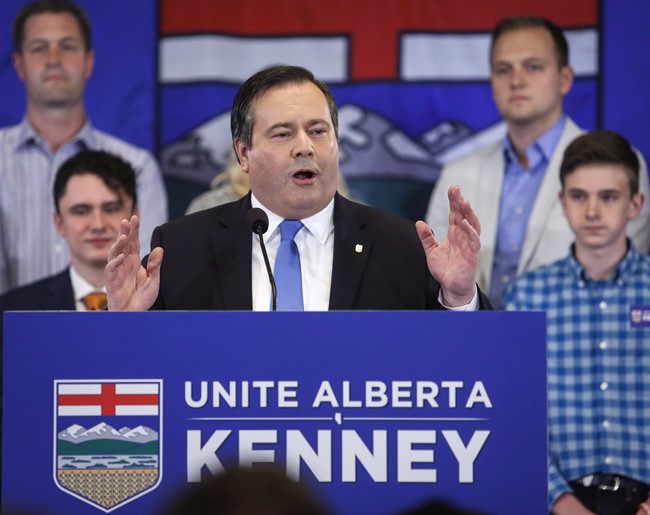It’s a tumultuous time in Alberta politics: Wildrose Leader Brian Jean announced Thursday he’d be willing to step down and run for a unified conservative party if members approve it. That came hours after Progressive Conservative leadership candidate Richard Starke proposed a plan for the two parties to remain separate but work together in the 2019 election to defeat Rachel Notley’s NDP.

For his part, former federal cabinet minister and PC leadership candidate Jason Kenney wants to blow up both parties and create something new.
The Wildrose Party currently holds 22 seats in the Alberta legislature, the PCs hold eight seats and the NDP have a majority with 55 seats.
So what are the key differences between the Wildrose and the PCs? And if they were to merge—the Progressive Roses? The Wild Conservatives?—where will they need to find common ground?

The rural / urban divide
Mount Royal University political analyst Duane Bratt said one key difference is the rural/urban divide in Alberta.
“Since the 2012 election, Wildrose has been dominant in rural Alberta but has had trouble winning in Calgary and Edmonton,” Bratt told Global News. “PCs may have lost their rural dominance to Wildrose, but they still do well in the cities (particularly Calgary).”
Gay rights
Bratt said the PCs had trouble with Bill 10 under former premier Jim Prentice.
He added Danielle Smith, who crossed the floor from the Wildrose to the PCs in 2014, has said it was her support of gay rights which led to Wildrosers undermining her leadership.
Smith acknowledged that’s what she experienced at the time, but said she believes Jean has shown “zero tolerance” for extremist attitudes within his party.

Get breaking National news
“The Wildrose supported gender identity recognition, they have stayed silent on the dispute between religious schools and the province over gay-straight alliances and they had an entry in the Calgary Pride Parade,” Smith said Friday. “I think Jean has been very successful in moderating the party on LGBTQ issues.”
Assets / liabilities
Bratt said the Wildrose Party still has lots of money in the bank, while the PCs are carrying a large debt.
“How they handle this part will be an important part of the merger negotiations,” he suggested.
Jean himself acknowledged the debt carried by the PCs in a News Talk 770 interview Friday, suggesting it would be a challenge in the future.
“Why not use the foundation that’s already strong, that already reflects members and their decision-making and already has the ability to take on the NDP today—right now—in an election if it was called today? We have enough in our war chest to seriously give them a good challenge. We’ve out-raised the NDP since the general election, both years.”
Government spending
Bratt suggested education and health-care spending choices are another area where there are differences between the two parties.
“Wildrose are maybe more fiscal hawks but I think there’s more room for commonality on the fiscal side; I think it’s on the social side where there are clear differences.”
“While in office, the PCs spent large sums of money on education and health care, while Wildrose believes that there are plenty of cuts to be made (without a lot of specifics).”
Populism
“The PCs were never a populist party, but Wildrose still has policies on their books for MLA recall, referendums, conscience rights, etc.,” Bratt said.
Smith suggested if there were to be a merger, the challenge would be getting all 87 of the individual consistency associations with the PCs to join the Wildrose and rebrand.
Watch below from Jan. 26: Alberta PC leadership candidate Jason Kenney said he was delighted to hear “this great news” from Wildrose Leader Brian Jean about a potential merge.

Smith said the PC Party changes its philosophy and direction depending on who they choose as a leader, whereas the Wildrose does not.
“If Richard Starke wins, it will be more progressive than the Wildrose; if Jason Kenney wins, it will be more socially conservative than the Wildrose.”
Watch below: Alberta PC leadership candidate Richard Starke explains why he’s changing his stance and proposing a sort of coalition to try and defeat the NDP.

Watch below: It’s been quite a week for conservative politics in Alberta with some major developments in the PC leadership campaign and Wildrose leader Brian Jean signalling he’s open to an effort to unite the right. Shallima Maharaj has more.




Comments